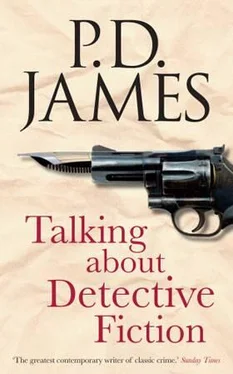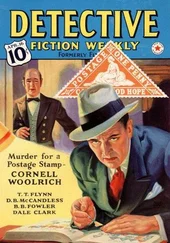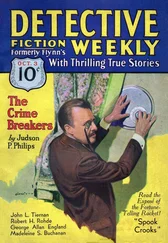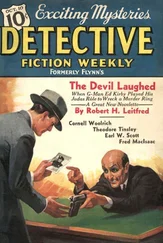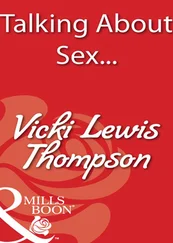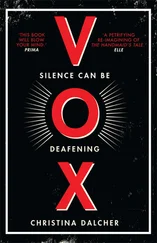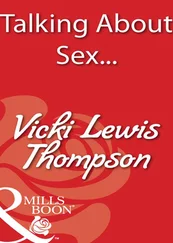Brighton Rock . We know from the beginning that Pinkie is a killer and that the unfortunate Hale, desperately walking the streets and lanes of Brighton, knows, as do we, that he is going to be murdered. Our interest is not primarily in the investigation of murder, but in the tragic fate of those involved. The novel adumbrates Greene’s preoccupation with the moral ambiguity of evil, which is at the heart of his creativity; indeed, he came to regret the detective element in
Brighton Rock and his own division of his novels between “entertainments” and those presumably which he intended should be taken seriously. I’m glad that Greene later repudiated this puzzling dichotomy, which picked out certain of his novels for disparagement and which helped to promote the still prevalent habit of dividing novels into those which are popular, exciting and accessible but, perhaps for these reasons, tend to be undervalued, and those in a somewhat ill-defined category which are granted the distinction of being described as literary novels. Greene surely couldn’t have meant that, when writing an “entertainment,” he took less trouble with the literary style, cared less for the truth of characterisation and modified the plot and theme to accommodate what he saw as the popular taste. This is manifestly not true of a writer of whom the words of Robert Browning are particularly appropriate:
Our interest’s on the dangerous edge of things.
The honest thief, the tender murderer,
The superstitious atheist.
Although the detective story at its highest can also operate on the dangerous edge of things, it is differentiated both from mainstream fiction and from the generality of crime novels by a highly organised structure and recognised conventions. What we can expect is a central mysterious crime, usually murder; a closed circle of suspects, each with motive, means and opportunity for the crime; a detective, either amateur or professional, who comes in like an avenging deity to solve it; and, by the end of the book, a solution which the reader should be able to arrive at by logical deduction from clues inserted in the novel with deceptive cunning but essential fairness. This is the definition I have usually given when speaking about my work but, although not inaccurate, it now seems unduly restrictive and more appropriate to the so-called Golden Age between the wars than it is today. Not all the villains are among a small group of obvious suspects; the detective may be faced with a single named or secret adversary who must be finally run down and defeated by logical deduction from observed facts and, of course, by the accepted heroic virtues: intelligence, courage and energy. This type of mystery is frequently a highly personal conflict between the hero and his prey, characterised by physicality, ruthlessness and violence, often amounting to torture, and even if the detective element is strong, the book is more appropriately described as a thriller than a detective story. The James Bond novels of Ian Fleming are the obvious example. But for a book to be described as detective fiction there must be a central mystery, and one that by the end of the book is solved satisfactorily and logically, not by good luck or intuition, but by intelligent deduction from clues honestly if deceptively presented.
One of the criticisms of the detective story is that this imposed pattern is mere formula writing, that it binds the novelist in a straitjacket which is inimical to the artistic freedom which is essential to creativity, and that subtlety of characterisation, a setting which comes alive for the reader and even credibility are sacrificed to the dominance of structure and plot. But what I find fascinating is the extraordinary variety of books and writers which this so-called formula has been able to accommodate, and how many authors have found the constraints and conventions of the detective story liberating rather than inhibiting of their creative imagination. To say that one cannot produce a good novel within the discipline of a formal structure is as foolish as to say that no sonnet can be great poetry since a sonnet is restricted to fourteen lines-an octave and a sestet-and a strict rhyming sequence. And detective stories are not the only novels which conform to a recognised convention and structure. All Jane Austen’s novels have a common storyline: an attractive and virtuous young woman surmounts difficulties to achieve marriage to the man of her choice. This is the age-long convention of the romantic novel, but with Jane Austen what we have is Mills & Boon written by a genius.
And why murder? The central mystery of a detective story need not indeed involve a violent death, but murder remains the unique crime and it carries an atavistic weight of repugnance, fascination and fear. Readers are likely to remain more interested in which of Aunt Ellie’s heirs laced her nightly cocoa with arsenic than in who stole her diamond necklace while she was safely holidaying in Bournemouth. Dorothy L. Sayers’s Gaudy Night doesn’t contain a murder, although there is an attempt at one, and the death at the heart of Frances Fyfield’s Blood from Stone is a spectacular and mysterious suicide. But, except in those novels of espionage which are primarily concerned with treachery, it remains rare for the central crime in an orthodox mystery to be other than the ultimate crime for which no human reparation can ever be made.
So how and when did detective fiction become an accepted genre of popular fiction? To this there is no easy or generally accepted answer. The novel itself is a comparatively recent product of the human imagination, hence its name. It cannot, for example, match the ancient lineage of drama and, unlike drama and verbal storytelling, it can appeal to only a privileged minority until a community achieves a high level of literacy. Storytelling is, of course, an ancient art. Tales which combine excitement with mystery, which offer a puzzle and a solution, can be found in ancient literature and legend and were probably told even earlier by the tribal storyteller round the camp fires of our remote ancestors. Their tales were surely more likely to have dealt with heroic action, revenge and mystery than with subtle ambiguities of character and the domestic problems of the warring couple in the next cave. And novels were being written and read for decades before readers, publishers, critics and booksellers thought of defining them in such categories as Mystery, Thriller, Romantic Fiction, Fantasy or Science Fiction, divisions which are often more a matter of convenience, marketing strategy, taste or prejudice than of fact, and which can be unhelpful to both the novels and their writers.
Some historians of the genre claim that the detective story proper, which fundamentally is concerned with the bringing of order out of disorder and the restoration of peace after the destructive eruption of murder, could not exist until society had an official detective force, which in England would be in 1842, when the detective department of the Metropolitan Police came into being. A distinguished detective novelist, Reginald Hill, creator of the Yorkshire duo Andrew Dalziel and Peter Pascoe, wrote in 1978, “Let me be clear. Without a police force there can be no detective fiction although several modern writers have, with varying degrees of success, tried to write detective stories set in pre-police days.” This opinion seems rational: detective fiction is unlikely to flourish in societies without an organised system of law enforcement or in which murder is commonplace. Mystery novelists, particularly in the Golden Age, were generally strong supporters of institutional law and order, and of the police. Individual officers might be portrayed as ineffective, plodding, slow-witted and ill-educated, but never as corrupt. Detective fiction is in the tradition of the English novel, which sees crime, violence and social chaos as an aberration, virtue and good order as the norm for which all reasonable people strive, and which confirms our belief, despite some evidence to the contrary, that we live in a rational, comprehensible and moral universe. And in doing this it provides not only the satisfaction of all popular literature, the mild intellectual challenge of a puzzle, excitement, confirmation of our cherished beliefs in goodness and order, but also entry to a familiar and reassuring world in which we are both involved in violent death and yet remain personally inviolate both from responsibility and from its terrors. Whether we should expect this detachment from vicarious responsibility is, of course, another question and one which bears on the difference between the books of the years between the wars and the detective novels of today.
Читать дальше
